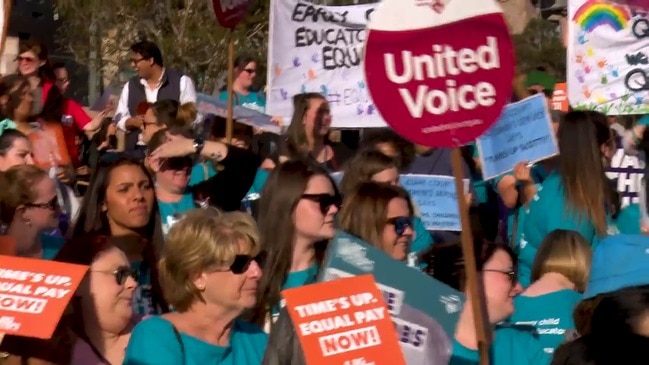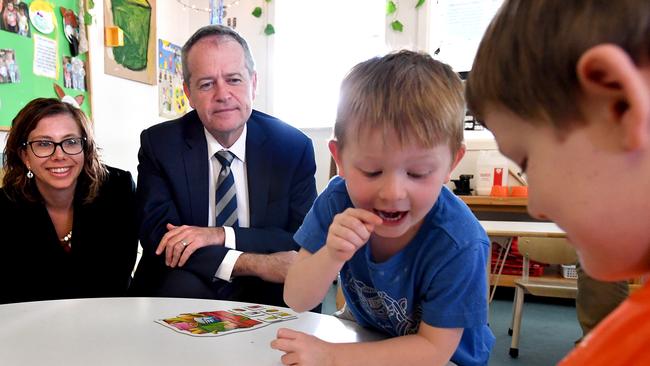Australian children would get to spend two years in kindergarten, under Labor plan
HOW young is too young for kids in kindy? Opposition Leader Bill Shorten is set to launch a radical new plan on Thursday that will change the “fourth pillar” of Australia’s education system.

CHILDREN would get access to two years of preschool as part of Opposition leader Bill Shorten’s cash-saving early childhood education plan to be launched today.
Mr Shorten has promised, if elected, to provide $1.75 billion in funding for all Australian children, allowing them 24-months of play-based learning before starting full-time schooling.
In South Australia it means children, starting at three years of age will get access to about 600 hours a year – or 15 hours a week – of kindergarten.
Mr Shorten said the National Preschool and Kindy Program would be the biggest ever investment in early childhood education in Australia.
“Under Labor, two years of preschool and kindergarten will be funded as the fourth pillar of our education system, taking their rightful place alongside schools, TAFE and university,” Mr Shorten said. “This is an economic and social reform as profound as lifting the school leaving age and opening up universal access to universities.
“This reform will see two years of early childhood education permanently embedded into our education system, in recognition of the importance of the early years of a child’s life.”
Opposition early childhood education and development spokeswoman Amanda Rishworth said the policy would ensures every child has access to a high quality early education in the years before school.
“It is about supporting families give their children the best possible start,” she said.
The United Kingdom, New Zealand, France, Ireland and China have all expanded their early childhood education programs to include kids, aged 3.
Since 2008, when funding for preschool enrolments for four year olds was introduced - the enrolment rate has gone from 77 per cent to between 93 and 97 per cent last year.

Mr Shorten said Labor’s investment would help close gaps created by disadvantage.
In February a report, commissioned by the state and territory governments, found significant savings could be made by additional investment in early-childhood interventions. The Lifting Our Game report said the case for starting school at three years of age was compelling.
“In terms of improving school outcomes through early-childhood interventions, the evidence points to this as the single most impressive, inspirational reform Australia could undertake, with international comparisons highlighting it as the biggest gap in the current system,” the report states.
